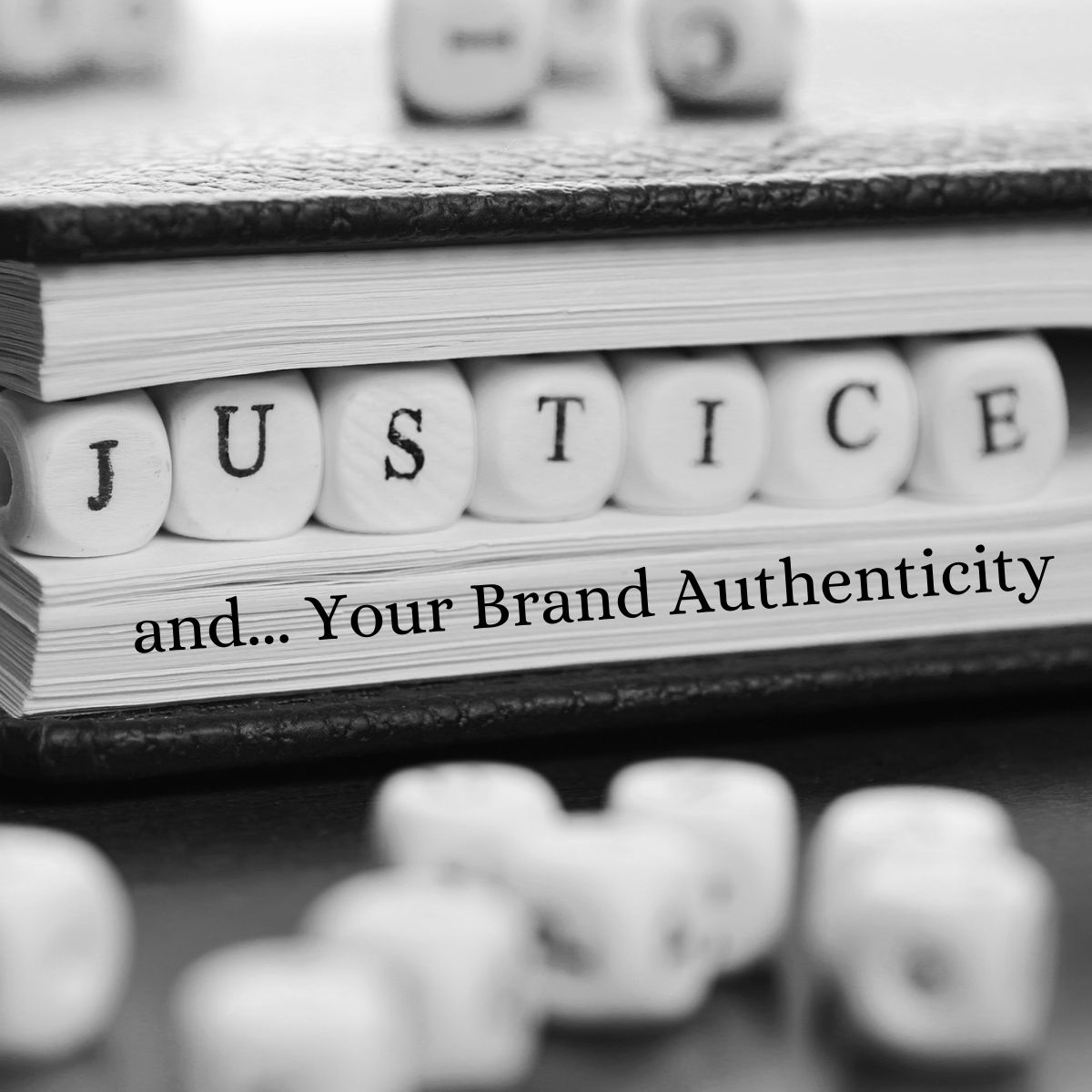Can Your Brand Afford to Not Take a Social Justice Stand?
Studies show that 60% of Americans across all generations feel brands have a responsibility to do the right thing. So corporations and brands need to pay attention, but while some are proactively showing their support and affecting change, others are coming off as inauthentic, i.e. not doing enough.
What Can Corporations and Brands Do to Be Truly Authentic?
This Forbes Articles – Purpose At Work: How Big Brands Are Showing Their Support For Social Justice, they said, and I quote…
“While making a statement is important,
brands must ensure their words
are backed with real actions and impact.
Consumers are increasingly sceptical of purpose washing.
They penalize companies that jump on the bandwagon…”
The Impact of Millennials and Gen Z Consumers
While 60% of Americans felt that brands have a responsibility to do the right thing, Millennials and Gen Z Consumers expect authenticity in their brands to an even greater degree… 69%.
This is much more so than previous generations. It’s quite telling about the influence of product benefits and quality. Basically the numbers are saying that’s just not enough.
This group seeks out brands that mean something and stand for something they can believe in. One factor that also influences this group’s buying is they are more diverse racially and ethnically than ever before. They’re helping shine a much larger light on injustice concerns.
In one Harvard Business Review article (How to Build a Digital Brand That Lasts) they talk about how historically, any changes in the rankings of our most valuable consumer brands were slow and small. So much so that it was sometimes almost imperceptible. That trend occurred from the ’50s through to the new millennium. But and that’s a big BUT…
Both The Internet and Pandemic Caused Buying Pattern Shifts
As the internet took hold, brands became less durable. New consumer buying habits blindsided many brands – particularly consumer brands. This trend increased during the pandemic and in some sectors, accelerated as more and more shopping moved online and social justice movements took centre-stage.
“Consumers are more likely to purchase from companies that take a stand on causes that align with their values and more importantly, companies have the power to make a difference.” In other words, consumers want to buy from companies who are authentic in their approach to social injustice”
…says Zendesk (6 Companies Tackling Social Justice Inspiring Customers)
So can Brand Authenticity Be Measured or Categorized?
One Harvard Business Review article (When a Brand Stands up For Racial Justice Do People Buy It?) identified four elements of brand authenticity and how consumers perceived a brand. They were:
- continuity – faithful to itself
- credibility – faithful to its customers’ expectations for the brand to deliver on its promises
- integrity – motivated by caring and responsibility towards the community
- symbolism – reflecting values that consumers consider important
Let’s Take a Closer Look At Brand Authenticity Elements…
- The first two continuity and credibility are customer and corporate-focussed.
- While the second two – integrity and symbolism – are more social issue-focussed. As these are more outward-looking, they’re the important ‘elements’ when it comes to authenticity – particularly related to racial justice and other important social issues.
How A Corporation’s Participation Affects Brand Perception
Whether a corporation takes an active vs passive approach to social justice can affect their target audience’s acceptance. Here are two paths corporations can take:
- As an ally – using non-racist communications but with limited action, which can end up carrying little or no sway and could even backfire as inauthentic
- As an active and proactive participant in campaigns that directly support anti-racism
By examining the intersection of orientation (corporate or societal) and type of participation (ally or activist) as presented in the table below, several brand actions of varying levels of authenticity emerge.
For Example:
Corporation-Oriented Actions (Allies)
Say a corporation has had products and ad campaigns with a negative racial connotation – they’re aware of past transgressions of social injustice
Action: They try to make amends for past sins by renaming, repackaging, or pulling the product from the market
Negatives: This is often perceived as the minimum, fairly passive and self-focused, so these actions can come off as inauthentic
Positives: If they donate some profits from product sales toward social justice movements then this is slightly more proactive in supporting an important social issue
Rating: low-medium in authenticity because their actions come off as self-serving corporate-focussed because it costs them not a lot while increasing their sales
There is a ‘rating’ exception. When a company donates 100% of profits to supporting an important social issue, these actions would get a medium-high in perceived authenticity
Brand Actions Oriented Toward a More Societal Approach
Positives: When a brand recognizes a broad social issue in a larger way, with a greater reach that is not so focused on increasing sales
Negative: This is still a pretty passive corporate action – taking care to limit exposure – their actions align with the business model while avoiding those that could negatively impact their sales.
Rating: medium-high on the authenticity scale
Advocate-Oriented Brand Actions
This is seen when a corporation takes a firm action – one that could cause possible harm to their brand or their whole business. This type of action gets the highest-ranking of truly authentic.
Corporate Risk + Actions for Broad Racial Justice = High-Authenticity Action
Harvard Business Review put together a great table containing true-life examples of Consumer Perceptions of Authenticity of Racial Justice Brand Actions (see the link at the bottom of this post).
Going Forward with Your Brand Authenticity
How corporations and brands handle social injustice influences the purchasing patterns and the amount of support certain products receive. When studies show that 60% of Americans – of all generations – feel that brands have a responsibility to do the right thing – brands who ignore or don’t address the issues with authenticity do so at their own peril.
The ‘60% of Americans’ figure increases to 69% among Millennials and Gen Z which gives the importance of a high authenticity rating even more weight. For corporations and brands concerned about brand perception and high authenticity, it is important to pay attention to these numbers.
“The most authentic brand actions are ones that proactively advocate societally-oriented, anti-racist actions. These are actions that come with some risk, but they are also most likely to be rewarded with real consumer loyalty.”
Origin is Here to Help
Origin has been helping corporations and their brands get it right for almost 25 years. If you have a new project we’d love to help. Contact Us
Haven’t already read Origin’s blog, 5 Things You Must Do When Branding? Do it now!
Links in this article:
- Forbes Articles – Purpose At Work: How Big Brands Are Showing Their Support For Social Justice
- Harvard Business Review article How to Build a Digital Brand That Lasts
- Zendesk 6 Companies Tackling Social Justice Inspiring Customers
- Harvard Business Review article When a Brand Stands up For Racial Justice Do People Buy It?
- Check out a great table containing true-life examples of Consumer Perceptions of Authenticity of Racial Justice Brand Actions



